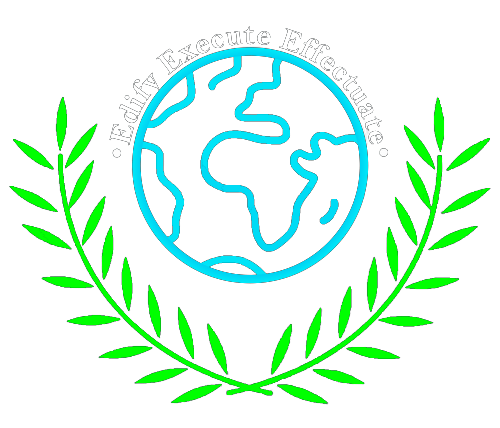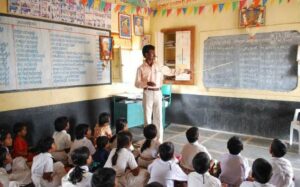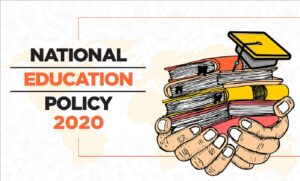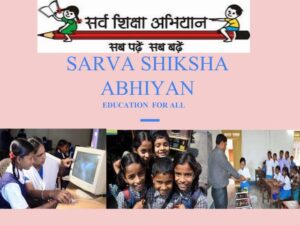Education for All ; understanding the role of SDG 4 in improving education around the world Education is something that is a birth right of every child. It’s education that carries the utmost importance in one’s life and enables them to live freely in the world. It is the key to a better life. Sustainable Development Goal 4 or SDG 4 helps the world by making education more accessible and making the world a better place. Even though the progress is not fast enough and 58% of the population has access to good education, United Nations strives to improve it by 2030.There targets are as follows:- Target 4.1: Completion rates in primary and lower secondary level education continue on an upward curve while the percentage of young people completing upper secondary school increased from 53% in 2015 to 59% in 2023. This increase, however, is at a slower pace relative to progress in the preceding eight[1]year period and such improvements do not always result in positive learning outcomes. Between 2018 and 2022, based on learning outcomes at the end of lower secondary school across 81 OECD and partner countries, mean performance in mathematics fell by a record 15 points while in reading fell 10 points. However, reading and mathematics scores had been declining for these countries prior to 2015, suggesting that COVID-19 explains only part of the decline. A complex set of factors affect the education systems of upper-middle[1]income and high-income countries. Target 4.2: Data from 76 mainly low- and middle-income countries from 2015 to 2023 shows that approximately two-thirds of young children are developmentally on track, with no significant gender differences. However, there are wide variations among countries and regions. In 2022, globally, 7 out of 10 children participated in organized learning one year before reaching official primary school age. Despite a 1.5 percentage point decline during the COVID-19 pandemic, participation levels have started to recover and return to pre-pandemic levels. Target 4.3: In countries with recent data, around one-sixth of individuals aged 15-64 have participated in education and training. Participation is significantly higher among youth aged 15-24 compared to those aged 24-55, with an average participation rate of nearly 50% across most regions. However, less than 3% of older adults aged 25-55 engage in education and training in most regions. Target 4.5: Socioeconomic disparities are prevalent in education, affecting various indicators. Global and regional parity ratios may hide gender inequalities within countries, disadvantaging either girls or boys. Disparities based on location or household wealth are more pronounced, with rural or less affluent families facing greater challenges. These gaps widen at higher education levels, leading to increased dropout rates and fewer opportunities for those from disadvantaged backgrounds. Target 4.a: Only half of all primary schools have the basic infrastructures and materials to provide an adequate schooling experience to pupils with disabilities and one in five primary schools globally does not have single-sex sanitation facilities. On average, 44% of primary schools, 56% of lower secondary schools and 69% of upper secondary schools had access to Internet in 2022, almost double the rates in 2021. At the upper secondary level, 91% of schools have access to electricity, 81% have computers for pedagogical use and 69% of schools are connected to the internet. Impact and Improvements -: Sustainable Development Goal 4 (SDG 4), focused on ensuring inclusive and equitable quality education and promoting lifelong learning, has played a significant role in the improvement of global education systems. It represents a shift from previous global education frameworks by broadening the scope of education targets to cover pre-primary, primary, secondary, and higher education, as well as vocational and adult education, addressing not only basic literacy and numeracy but also global citizenship, sustainability, and gender equality. SDG 4’s comprehensive approach to quality education has influenced policies globally, emphasizing equality and lifelong learning as key elements to promote social inclusion and reduce inequalities (Unterhalter, E. 2019).One of the primary impacts of SDG 4 has been the establishment of measurable targets, such as ensuring free and equitable primary and secondary education for all children and the elimination of gender disparities in education. These targets have encouraged governments to prioritize education reforms, leading to improved access to education, particularly for disadvantaged groups, including women, children with disabilities, and marginalized communities(Boeren, E ,2019).However, the success of SDG 4 has been mixed. While global enrolment in primary education has increased, significant challenges remain in terms of quality, equity, and inclusivity. Many countries still struggle with issues such as teacher shortages, insufficient infrastructure, and lack of access to digital learning tools, particularly in rural areas.SDG 4 also addresses the content of education, promoting skills for sustainable development, human rights, and peacebuilding.This holistic approach has fostered educational practices that go beyond traditional rote learning, encouraging critical thinking, collaboration, and global awareness. The integration of information and communication technology (ICT) in education, for example, has emerged as a key strategy for enhancing learning outcomes, especially in remote or underserved regions. Additionally, SDG 4 has created opportunities for international collaboration and partnerships in education, as seen through initiatives that bring together governments, private sectors, and civil society organizations to share best practices and resources (Saini, M., Sengupta, E., Singh, M., Singh, H., & Singh, J 2023) Improvement in Women’s Education -: Sustainable Development Goal 4 (SDG 4) has played a critical role in improving women’s education by focusing on eliminating gender disparities and providing equal access to quality education at all levels. It has enabled global efforts to ensure that women and girls receive the education necessary to participate fully in economic, political, and social spheres. Despite some progress, significant challenges remain, particularly in regions where traditional gender roles, poverty, and social norms hinder access to education for women and girls. One of the most significant impacts of SDG 4 has been in increasing literacy rates among women. Literacy is closely linked to better employment opportunities, higher income, and greater social and political participation. It also has instrumental value, as maternal literacy correlates










